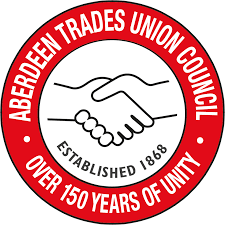Related Research Articles

Fred Bramley was the second General Secretary of the British Trade Union Congress (TUC).

The Sheffield Trades and Labour Council, usually known as the Sheffield Trades Council, is a labour organisation uniting trade unionists in Sheffield.

Frederick Maddison JP was a British trade unionist leader and Liberal politician.
The Labour Electoral Association was a political organisation in the United Kingdom which aimed to get working men elected to Parliament.

The Trades Union Congress (TUC) is a national trade union centre, a federation of trade unions in England and Wales, representing the majority of trade unions. There are 48 affiliated unions, with a total of about 5.5 million members. The current General Secretary is Frances O'Grady.

The London Trades Council (1860–1953) was an early labour organisation, uniting London's trade unionists. Its modern successor organisation is the Greater London Association of Trades (Union) Councils
The Amalgamated Society of Engineers (ASE) was a major British trade union, representing factory workers and mechanics.

Frederick Parkin Hammill was a British trade union activist, and a co-founder of the Independent Labour Party.
William Pickles was a British trade unionist and political activist.
The history of trade unions in the United Kingdom covers British trade union organisation, activity, ideas, politics, and impact, from the early 19th century to the present.
Stuart Uttley was a British trade unionist.
Charles Hobson was a British trade unionist.

Thomas McCarthy was a British Irish trade unionist, who became prominent as a leader of dockers in England.
The Nelson Weavers' Association (NWA) was a trade union representing cotton weavers in the area of Nelson, Lancashire. As the main industry in the town, the union has been influential in its history, and some of its leaders became significant national figures.

Aberdeen Trades Union Council (ATUC) is the body made up of affiliated trade union branches and organisations working in the Aberdeen and Aberdeenshire area to promote the interests of workers in the region. The ATUC provides services to affiliated branches on a wide range of industrial, social and community issues and is affiliated to the STUC. It has an office based in Aberdeen, Scotland.
Bradford Trades Council brings together trade unionists in and around Bradford, in West Yorkshire in England.
The Halifax Labour Union was an early labour movement organisation in Halifax in England.
James Tattersall was a British political activist.
The Notts Trades Council, formally known as the Nottinghamshire Nottingham and Mansfield Trades Council, brings together trade unionists in Nottinghamshire, in England.
Leeds Trades Council is an organisation bringing together trade unionists in Leeds, in northern England.
References
- ↑ Brown, Raymond (1972). Waterfront organisation in Hull, 1870-1900. Hull: University of Hull. p. 20.
- 1 2 3 4 5 6 Béliard, Yann (2018). Contested Coordinator: the Hull Trades Council, 1872-1914. Oxford: Oxford University Press. ISBN 1526126346.
- ↑ "The Trades Congress at Hull". Exeter and Plymouth Gazette. 7 September 1886.